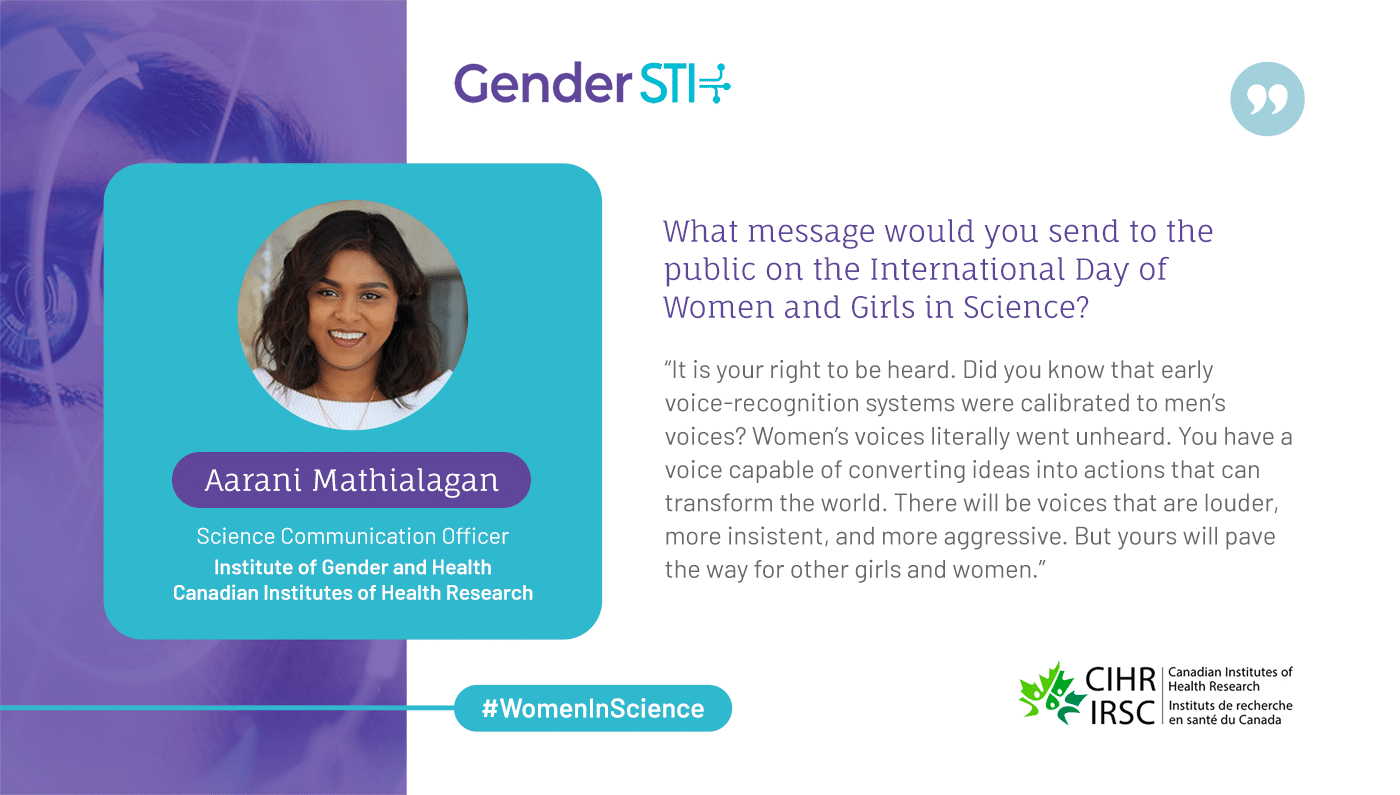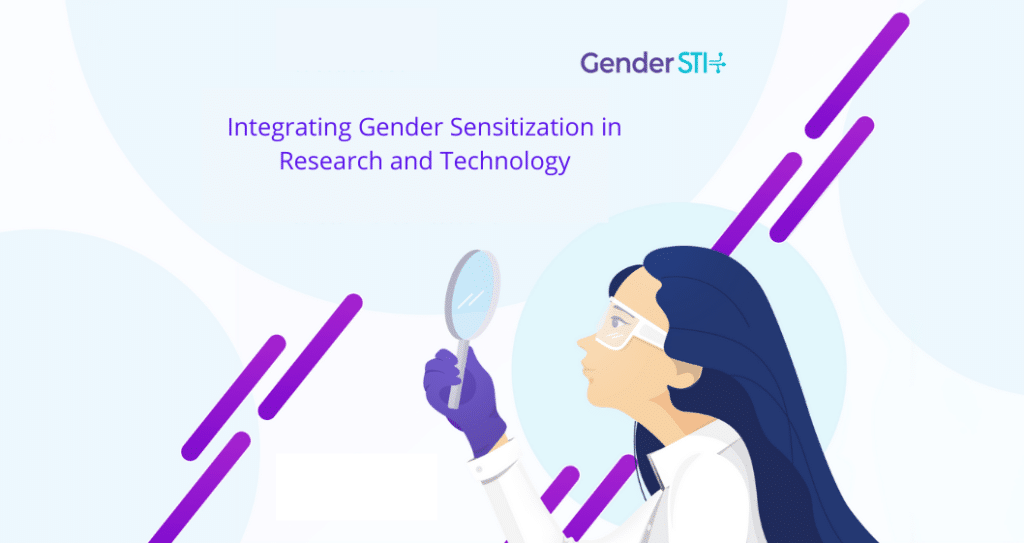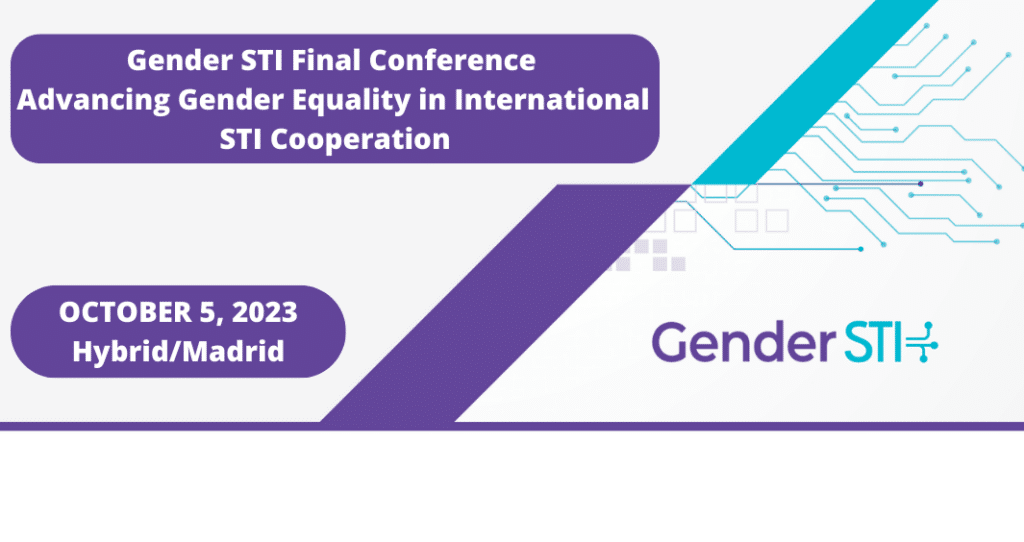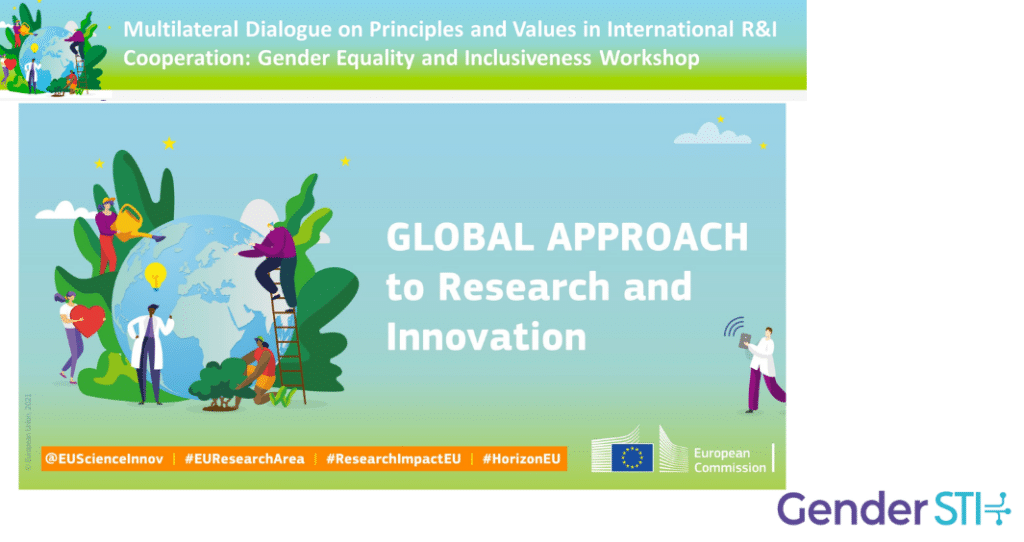This week, the world will celebrate the International Day of Women and Girls in Science on Feb. 11, which aims to promote full and equal access to and participation in science for women and girls. As part of this effort, Gender STI has launched its own #WomenInScience campaign. We talked to researchers and experts, both men and women, about why they got involved in science, what they think about current statistics on women researchers and what they think needs to be done to encourage more women and girls to pursue scientific careers.
As our next #WomanInScience points out, women have a right to be heard, and their voices can turn ideas into action that can change the world. Meet Aarani Mathialagan, Science Communication Officer at the Canadian Institutes of Health Research – Institute of Gender and Health.
What is your job position and why did you decide to work in science, technology and innovation? What does your job entail?
I am the Science Communication Officer at the Canadian Institutes of Health Research – Institute of Gender and Health. Having completed a master’s degree in science communication, I wanted to bridge my twin passions of science and art to disseminate research to people in a way that simply clicks in their mind – the Aha! moment. My role involves designing presentations, infographics, and reports; connecting with health researchers and organizations via social networks; and sharing the outcomes of initiatives such as funding opportunities and events.
According to the United Nations, currently less than 30% of researchers worldwide are women. What do you think about that?
While overt gender discrimination in scientific fields may have been largely reduced, long-standing biases and stereotypes persist. It begins with the gender gap in education and ends with women leaving STEM fields at disproportionately higher rates than men. It’s 2021. Women must have full and equitable access to and participation in the science, technology and innovation sector.
What would you tell young girls and women who are interested in pursuing a career in science?
Ask questions! Science calls for open-ended inquiry, for learning through observations, and for failure to be a welcome part of the process. Seek out supportive peers and mentors who can support you in more than science training and academia, who can support you in finding your unique path and place in science.
What do you think needs to be done to encourage more girls and women to pursue scientific careers?
We cannot simply recruit girls and women to pursue scientific careers; we must address barriers to retaining and advancing women in science. There are many initiatives that aim to remove barriers by engaging K-12 girls in science, and it’s crucial to see these efforts mirrored in retaining and advancing women who are in science careers. More needs to be done to create a culture where women feel welcome, dismantle subtle gender biases and stereotypes, and develop viable paths to advancement.
What message would you send to the public on the International Day of Women and Girls in Science?
It is your right to be heard. Did you know that early voice-recognition systems were calibrated to men’s voices? Women’s voices literally went unheard. You have a voice capable of converting ideas into actions that can transform the world. There will be voices that are louder, more insistent, and more aggressive. But yours will pave the way for other girls and women.



